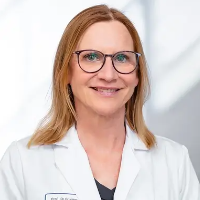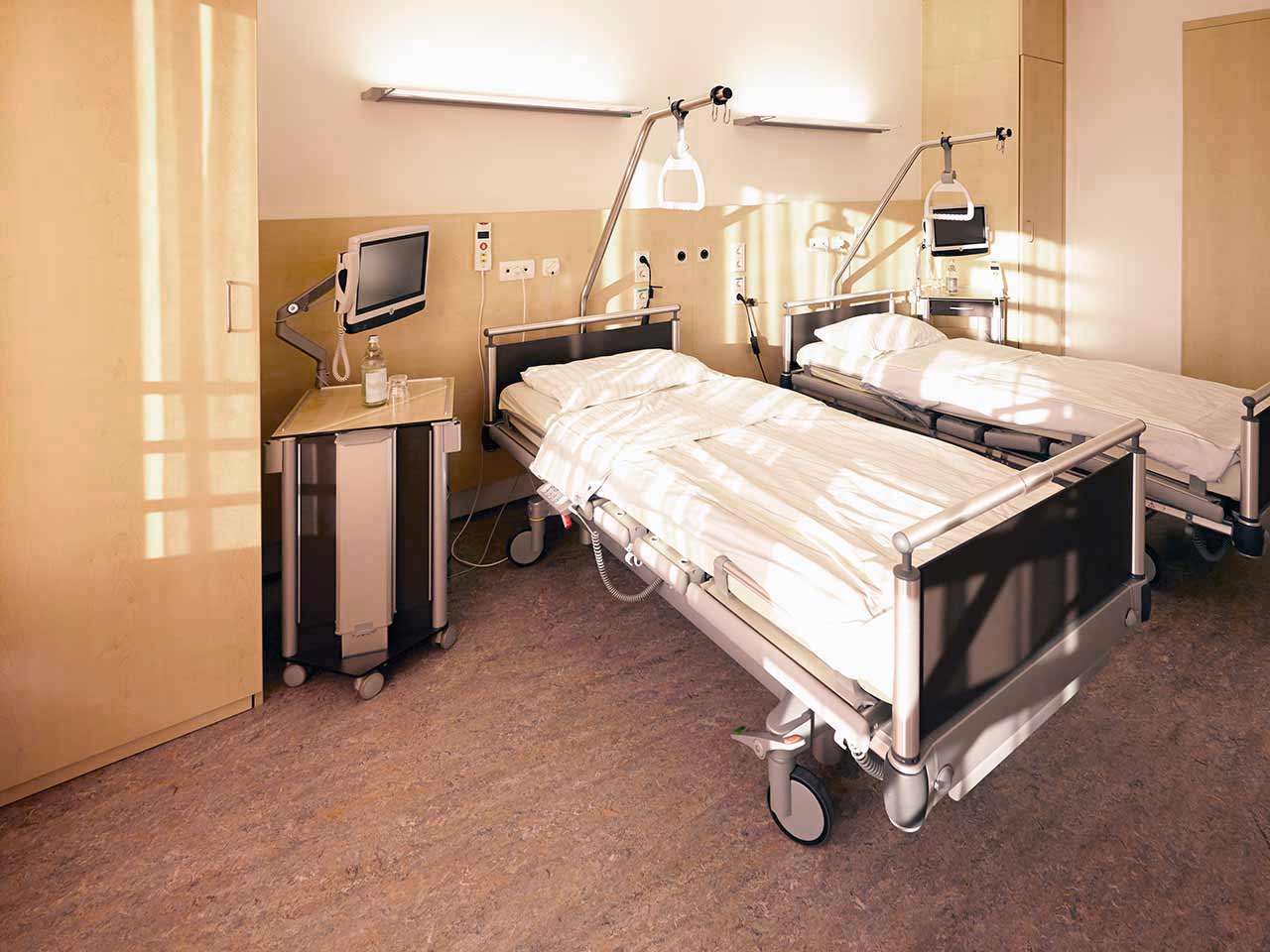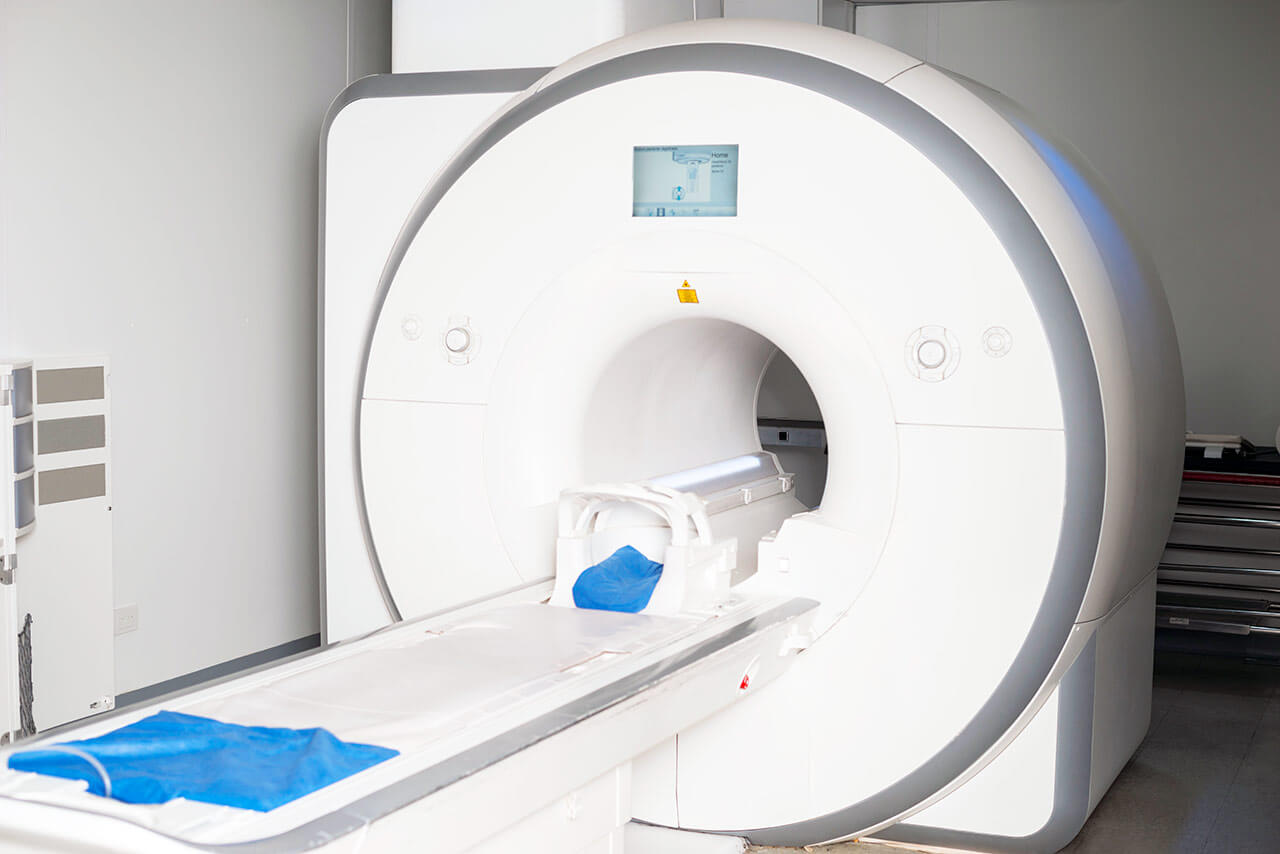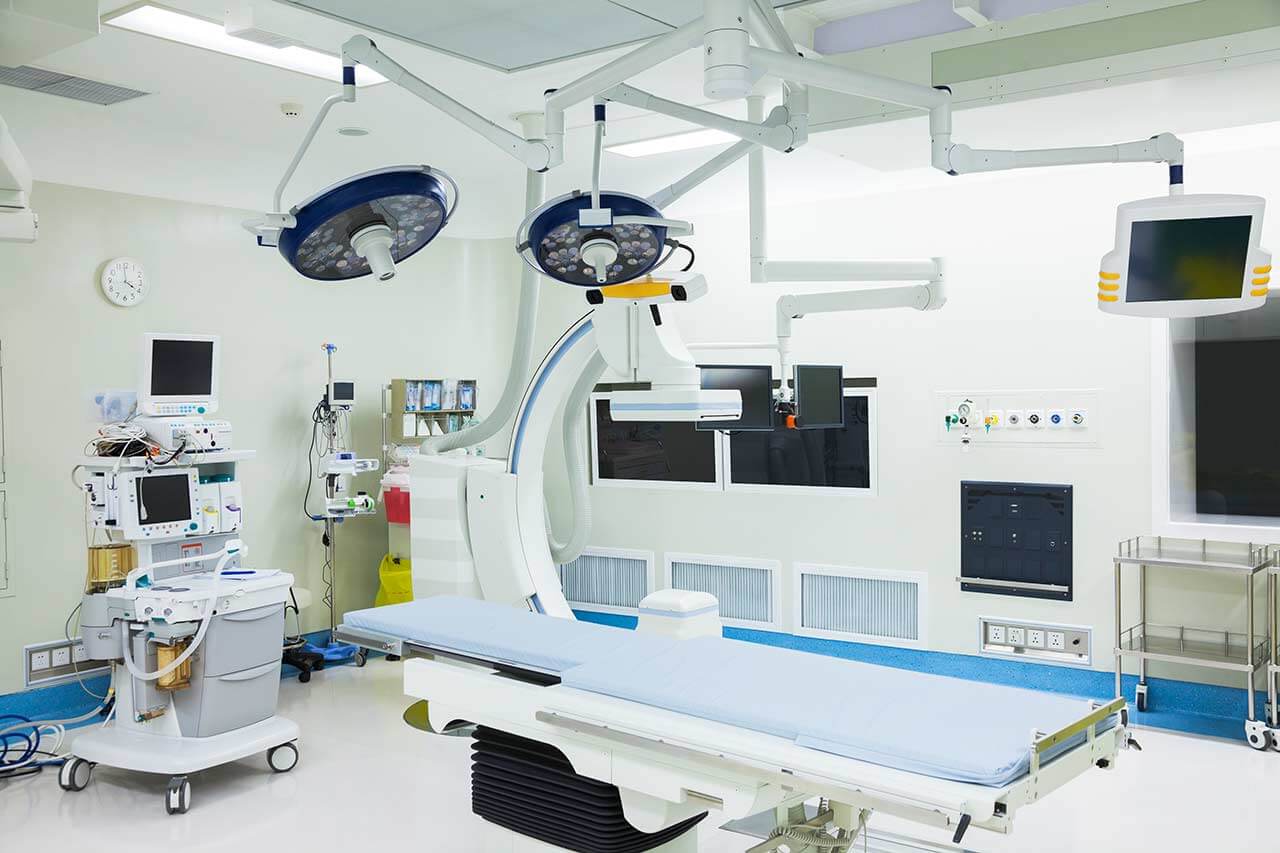
The program includes:
- Initial presentation in the clinic
- clinical history taking
- review of medical records
- physical examination
- laboratory tests:
- complete blood count
- general urine analysis
- biochemical analysis of blood
- TSH-basal, fT3, fT4
- tumor markers
- inflammation indicators (CRP, ESR)
- indicators of blood coagulation
- abdominal ultrasound scan
- CT scan/MRI or PET-CT of abdomen
- preoperative care
- cytoreductive surgery to remove visible tumors
inside the abdomen and HIPEC - histological and immunohistochemical
examination of removed tissues - symptomatic treatment
- cost of essential medicines
- nursing services
- stay in the hospital with a full board
- accommodation in a 2-bedroom ward
- elaboration of further recommendations
How program is carried out
During the first visit, the physician will conduct a clinical examination and go through the results of the available diagnostic tests. After that, you will undergo the necessary additional examination, such as the assessment of liver and kidney function, ultrasound scan and tomography of the abdominal organs. Based on the results of the examination, the physician will choose the surgical technique and the type of anesthesia. After that, preparation according to the preoperative standard will start.
Cytoreductive surgery begins with general anesthesia. The intervention is performed as open surgery, i.e. through the incision in the anterior abdominal wall, so that the surgeon can carefully examine the peritoneum and the surface of the abdominal organs. The surgeon removes affected by the malignant process ovaries, areas of the peritoneum and metastases in other internal organs. This stage of the operation can take several hours, since the overall effectiveness of the treatment depends on the completeness of the malignant tissues removal.
At the next stage of the operation, the surgeon inserts several catheters into the abdominal cavity. Through the catheters, a heated solution of a chemotherapy drug is pumped inside. The special system maintains the required temperature (42-43 degrees Celsius), pressure and circulation rate of the medicinal solution. The solution mechanically flushes out blood clots and remnants of malignant tissues, and a heated chemotherapy drug destroys micrometastases in internal organs and lymph nodes (micrometastases can’t be detected by the naked eye).
After 1-1.5 hours, the chemotherapy drug is removed from the abdominal cavity and the abdominal cavity is washed with saline. After that, the surgeon removes the catheters and sutures the incision of the anterior abdominal wall.
After the completion of the operation, you will be transferred to the ward of the intensive care unit, under the round-the-clock supervision of doctors and nurses. In 1-3 days after the operation, your drains will be removed and you will be transferred to a regular ward for further recovery. The whole treatment takes 10-12 days on average.
Finally, the attending physician will evaluate the results of control examinations, schedule the date of discharge from the hospital and give you detailed recommendations for further follow-up and treatment.
Required documents
- Medical records
- MRI/CT scan (not older than 3 months)
- Biopsy results (if available)
Service
You may also book:
 BookingHealth Price from:
BookingHealth Price from:
About the department
The Department of Obstetrics, Gynecology and Mammology at the Nuremberg Hospital offers all modern diagnostic and therapeutic options for women with reproductive system diseases and breast pathologies. An important focus in the department's clinical practice is on the comprehensive management of pregnancy, the provision of safe childbirth, and postnatal care for mother and child. One of the key focuses of the department's doctors is the comprehensive treatment of gynecologic cancers. The department houses a specialized center certified in accordance with the requirements of the German Cancer Society (DKG) and DIN EN ISO standards. The department also offers the full range of services for patients with breast cancer, which is the most common cancer among women worldwide. The department is one of the few in Germany and Europe where robot-assisted interventions using the da Vinci Xi surgical system are performed with excellent results. These operations are distinguished by their highest precision and low trauma rate, providing the same effectiveness as classic surgery. The department's specialists perform robot-assisted interventions for both benign and malignant diseases of the female reproductive system. The department's gynecologists treat more than 2,460 inpatients and about 3,000 outpatients every year. The department is headed by Prof. Dr. med. Cosima Brucker.
The department's team of doctors has unique professional skills in the treatment of gynecologic cancers, such as cervical, ovarian, endometrial, and vulvar cancer. Patients with suspected cancer are treated at a specialized center where gynecologists, oncologists, radiologists, radiation therapists, and other specialists cooperate closely. The department's doctors always give preference to customized treatment and thoroughly plan the upcoming therapy at regular interdisciplinary tumor boards. In the majority of cases, surgical resection of the malignant tumor is the primary treatment option. Thanks to the availability of state-of-the-art equipment in the department, operations for gynecologic cancers are performed using minimally invasive laparoscopic and robot-assisted techniques.
It is worth noting da Vinci robot-assisted surgery, which not every Gynecology Center in Germany offers because it requires expensive equipment and special training for doctors. The department's gynecologists have been performing robot-assisted surgery to treat cancers of the female reproductive system for more than 5 years and can be proud of their vast experience in this field since robot-assisted surgery is an innovative treatment method nowadays. Robot-assisted interventions are performed with the da Vinci manipulator arms equipped with miniature instruments. All manipulations of the robotic system are controlled by the surgeon, who can see even the smallest anatomical structures on the screen due to multiple zooms with 3D imaging of the operating field. When performing the operation, the surgeon is at the control console of the robotic surgical system and gives it commands, which it performs with impeccable accuracy with almost no damage to the healthy tissues. The da Vinci surgical system makes a 1-2 cm skin incision to approach the pathological focus, so postoperative risks are almost zero. With the high efficiency of robot-assisted surgery, it also provides an excellent aesthetic result, leaving few visible scars.
Another important field of competence for the department's team of doctors is the provision of medical care to patients with breast cancer. This cancer is one of the most common and life-threatening among women. Therefore, since 2006, the department has been operating a specialized Breast Center certified by the German Cancer Society (DKG) and the German Society for Senology (DGS). All modern diagnostic procedures are available here for patients with suspected breast cancer, including digital mammography, breast sonography, tomosynthesis, magnetic resonance imaging, needle biopsy, vacuum-assisted stereotactic breast biopsy, etc. As for the treatment, it is developed for each patient individually, taking into account their needs and wishes as well as the requirements of German professional associations and modern clinical protocols. As a rule, the first-line treatment is a surgical resection of the malignant tumor, and in the advanced stages, breast specialists resort to a mastectomy. The department's doctors perform intraoperative radiation therapy if clinically indicated. Most patients with breast cancer also receive chemotherapy before or after surgery. Antihormone therapy is often included in the treatment regimen as well. Although radical breast resection surgery is extremely rare in the department, it is sometimes unavoidable. If a woman undergoes a radical surgical procedure, it will be followed by reconstructive plastic surgery with the use of silicone implants or autologous tissues, which plastic surgeons use to successfully restore breast aesthetics.
The department offers high-quality obstetric services. The specialists in this medical field take care of pregnancy management and successful childbirth. They are also responsible for high-risk and multiple pregnancies. The department's delivery rooms are equipped with everything necessary to alleviate the process of childbirth, including soft music and aroma oils. The baby's father or a close family member can be present during childbirth, if desired. Epidural anesthesia, acupuncture, and homeopathic medicines are used to relieve pain during childbirth. The department has the status of a Level I Perinatal Center, which indicates outstanding quality of medical care.
The department's range of medical services includes:
- Gynecology
- Diagnostics and treatment of malignant gynecologic diseases
- Uterine cancer
- Cervical cancer
- Ovarian cancer
- Endometrial cancer
- Vulvar cancer
- Diagnostics and treatment of precancerous conditions
- Cervical dysplasia
- Diagnostics and treatment of benign gynecologic diseases
- Endometriosis
- Uterine fibroids
- Ovarian cysts
- Urinary incontinence
- Pelvic organ prolapse
- Diagnostics and treatment of malignant gynecologic diseases
- Mammology
- Diagnostics and treatment of benign breast diseases
- Benign breast tumors
- Mastalgia
- Breast cysts
- Breast inflammation
- Diagnostics and treatment of malignant breast diseases
- Precancerous conditions
- Early breast cancer
- Advanced breast cancer
- Diagnostics and treatment of developmental abnormalities of the breast
- Breast deformities
- Breast hypertrophy
- Breast hypoplasia
- Diagnostics and treatment of benign breast diseases
- Obstetrics
- Comprehensive pregnancy management, including childbirth preparation courses
- Childbirth: natural childbirth, C-section, and water birth
- Postpartum care for both mother and child, including emergency care for complications
- Pain management during childbirth: epidural anesthesia, acupuncture, homeopathy, and aromatherapy
- Other medical services
Curriculum vitae
Higher Education, Postgraduate Training and Professional Career
- 1981 - 1987 Medical studies at the University of Ulm, Scholarship from the German Academic Scholarship Foundation.
- 1987 Admission to medical practice, Baden-Wuerttemberg Medical Association.
- 1987 Foreign Medical Graduate Examination in the Medical Sciences (FMGEMS).
- 1987 Doctoral Degree, Department of Medical Microbiology and Immunology, University of Ulm.
- 1988 - 1990 Postdoctoral Fellow at the Jones Institute for Reproductive Medicine, Norfolk, Virginia, USA, Scholarship from the German Research Foundation.
- 1990 - 1996 Clinical training for board certification, Department of Gynecology and Obstetrics at the University Hospital of Ludwig Maximilian University of Munich.
- 1997 Board certification in Gynecology and Obstetrics, Bavarian State Medical Association.
- 1997 C3 Professorship in Gynecological Endocrinology and Reproductive Medicine, University of Ulm.
- 1997 Habilitation in Gynecology and Obstetrics, Ludwig Maximilian University of Munich.
- 2000 Theoretical foundations of the specialty in Laboratory Research in Gynecology and Obstetrics.
- 2003 Optional advanced training in Special Gynecological Surgery.
- 2004 Optional advanced training in Obstetrics and Perinatal Medicine.
- Since January 2004 Head Physician of the Department of Obstetrics, Gynecology and Mammology at the Nuremberg Hospital.
- 2005 Specialization in Gynecologic Oncology.
- Since August 2014 Professor of Gynecology and Obstetrics, Paracelsus Private Medical University in Nuremberg.
- 2022 Certified Breast Surgeon (SERGS).
Memberships in Professional Societies
- German Cancer Society (DKG).
- Working Group on Gynecological Oncology (AGO).
- German Society for Gynecology and Obstetrics (DGGG).
- German-Turkish Medical Association (DTM).
- Professional Association of Gynecologists (BVF).
- German Society for Gynecological Endocrinology and Reproductive Medicine (DGGEF).
- Working Group of the German Society for Gynecology and Obstetrics (DGGG).
- German Society for Reproductive Medicine (DGRM).
- Association of Bavarian Centers for Reproductive Medicine (BRB).
- German Medical Association.
Photo of the doctor: (c) Klinikum Nürnberg
About hospital
According to the reputable Focus magazine, the Nuremberg Hospital ranks among the top German medical facilities!
The hospital is one of the largest, highly specialized medical centers in Europe and positions itself as the maximum care hospital. The healthcare facility is an academic hospital of the Paracelsus Medical University in Nuremberg. It houses 42 departments, institutes, and highly specialized centers focusing on various medical fields. All the hospital's employees work hand in hand for the benefit of their patients. The specialists strive to provide top-class medical care for every patient. Moreover, the medical team always shows a humane attitude and understanding towards the patient's life situation, making every effort to support them during the entire therapeutic process.
The total number of beds in the hospital is 2,233. The medical team consists of more than 8,400 employees, including many world-famous doctors and professors who had their clinical training at the best medical facilities in Germany, other European countries, and the USA. The hospital admits more than 100,000 inpatients and more than 170,000 outpatients annually. The number of patients who come to the hospital steadily increases every year, which is the best confirmation of its high standards and outstanding treatment results.
The cornerstone of successful clinical practice is state-of-the-art technical infrastructure. The hospital offers its patients innovative technologies such as the Da Vinci surgical system, devices for stereotactic procedures, intraoperative radiation therapy, angiography, PET CT devices, high-intensity focused ultrasound, 64-slice CT scanners, and other advanced medical devices. The combination of cutting-edge technical facilities and the high competence of the physicians allows for the provision of effective treatment even in the most complex cases.
The Nuremberg Hospital is undoubtedly one of Germany's leading medical facilities, where patients benefit from modern infrastructure, precise diagnostics, effective treatment, and responsive care.
Photo: (с) depositphotos
Accommodation in hospital
Patients rooms
The patients at the Nuremberg Hospital live in comfortable single and double rooms. Each patient room is equipped with an ensuite bathroom with a shower and a toilet. Standard rooms include an automatically adjustable bed, a bedside table, a wardrobe for storing clothes, a table and chairs for receiving visitors, a TV, and a radio. The hospital also offers Wi-Fi.
If desired, patients can live in enhanced-comfort rooms. Such patient rooms are more spacious, and their furnishings correspond to the level of an upscale hotel.
Meals and Menus
The patients at the hospital are offered tasty and balanced meals three times a day: breakfast, lunch, and dinner. The patients have a daily choice of three dishes for lunch and dinner, while breakfast is served as a buffet.
If, for some reason, you do not eat all foods, you will be offered an individual menu. Please inform the medical staff about your food preferences prior to treatment.
Further details
Standard rooms include:
Accompanying person
Your accompanying person may stay with you in your patient room or at the hotel of your choice during the inpatient program.
Hotel
You may stay at the hotel of your choice during the outpatient program. Our managers will support you for selecting the best option.





